Menopause Gastrointestinal Problems: Causes and Effective Solutions
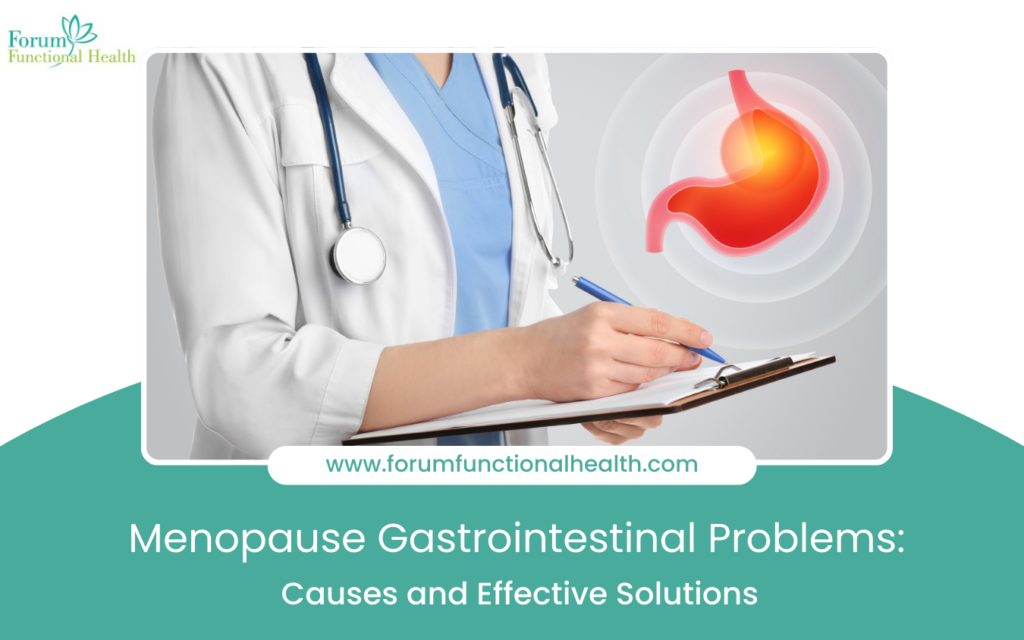
Navigating the journey through menopause can be challenging, especially when unexpected symptoms like gastrointestinal (GI) problems arise. These issues can significantly impact daily life, from bloating and indigestion to severe abdominal discomfort. Understanding the causes and finding effective solutions can make this transition smoother for women. Causes of Menopause Gastrointestinal Problems Menopause gastrointestinal problems often […]
How to Manage Perimenopause Fatigue: Expert Tips and Treatments
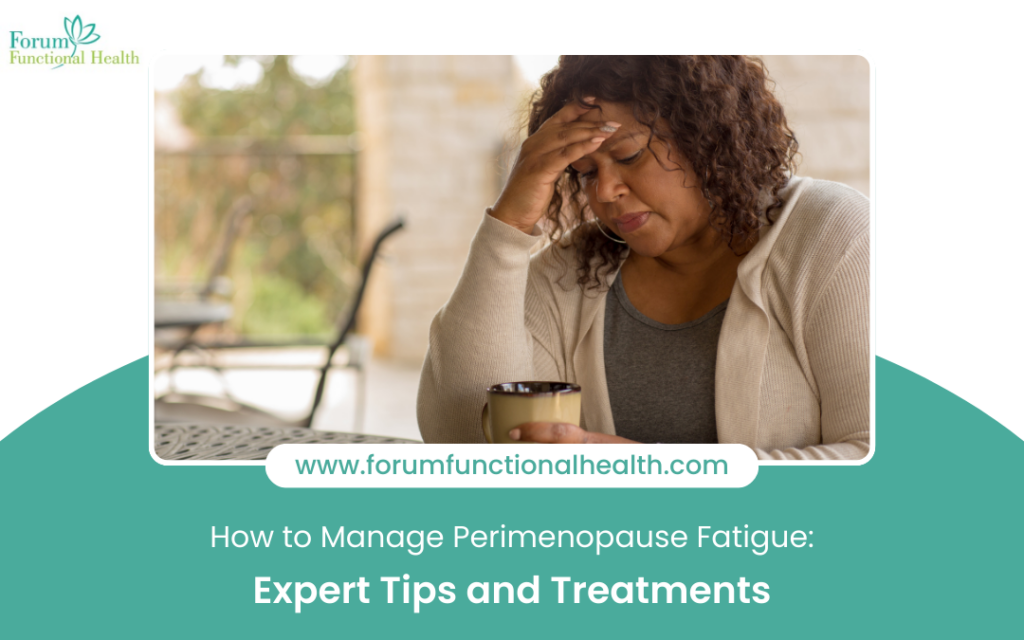
Perimenopause fatigue can disrupt your daily life, leaving you feeling drained and overwhelmed. For women navigating this transitional phase, understanding its impact and seeking effective treatments is essential. With the right strategies and professional support, you can regain energy and improve your overall quality of life. Explore expert tips, signs, and effective solutions for managing […]
Signs Perimenopause is Ending and Navigating Menopause: Symptoms and Treatments
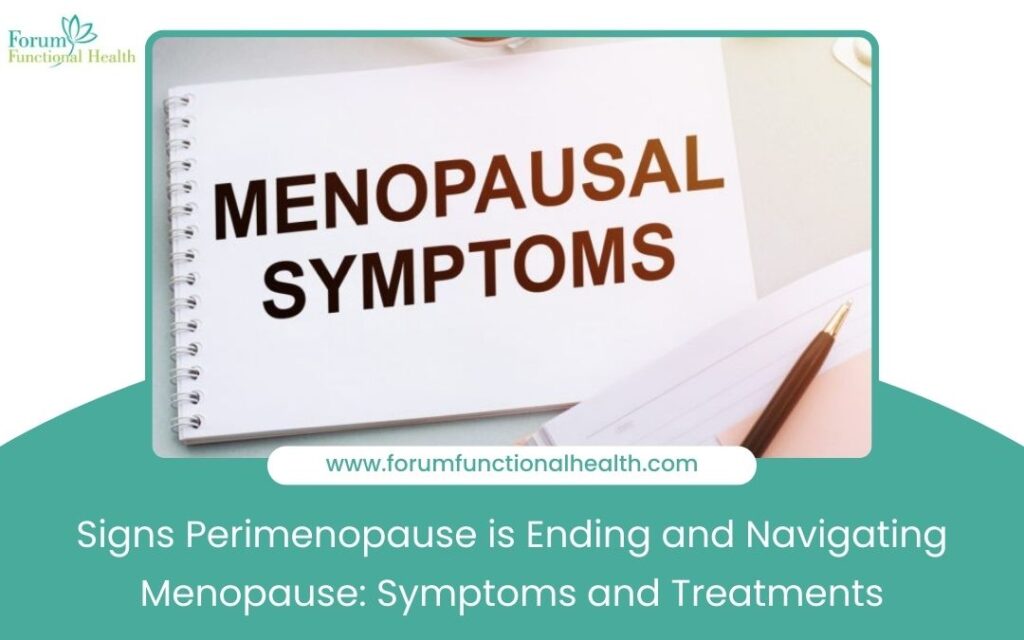
The journey from perimenopause to menopause is a significant transition in a woman’s life, often filled with a mix of emotions, physical changes, and questions. Recognizing when perimenopause is ending can help women prepare for menopause and understand how to best care for their health through these stages. This guide provides insights into the symptoms […]
What Signals the End of Menopause? Signs Every Woman Should Know
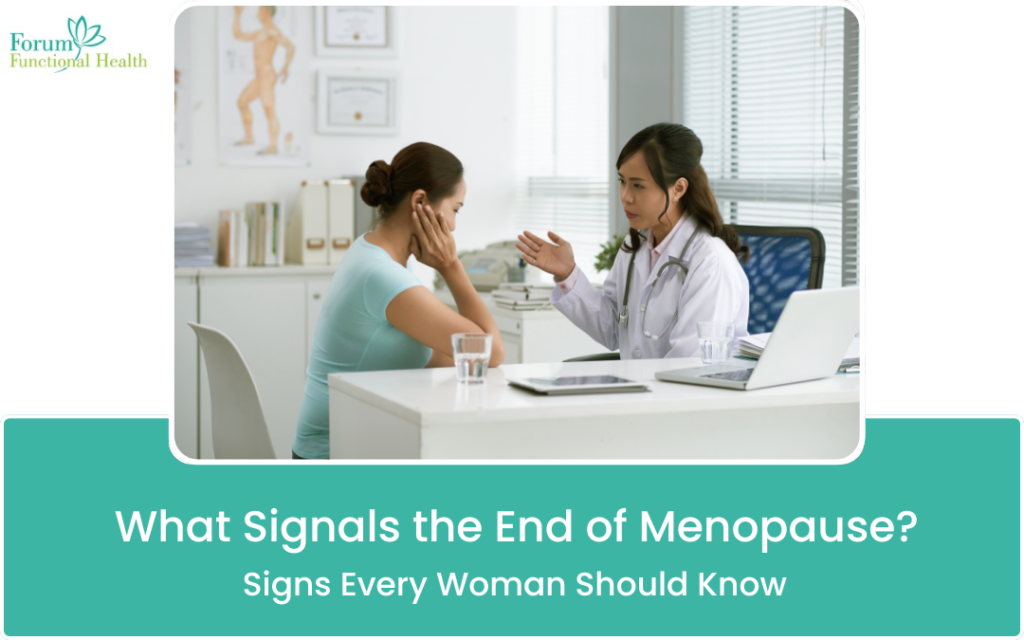
Menopause is a natural phase in every woman’s life, marking the end of menstrual cycles. It’s a significant transition, and understanding its conclusion is essential for navigating this period with confidence. At Forum Functional Health Center, we recognize the importance of this phase and provide comprehensive support for women in McKinney, Texas. This blog will […]
What to Expect During Premenopause, Perimenopause, and Menopause
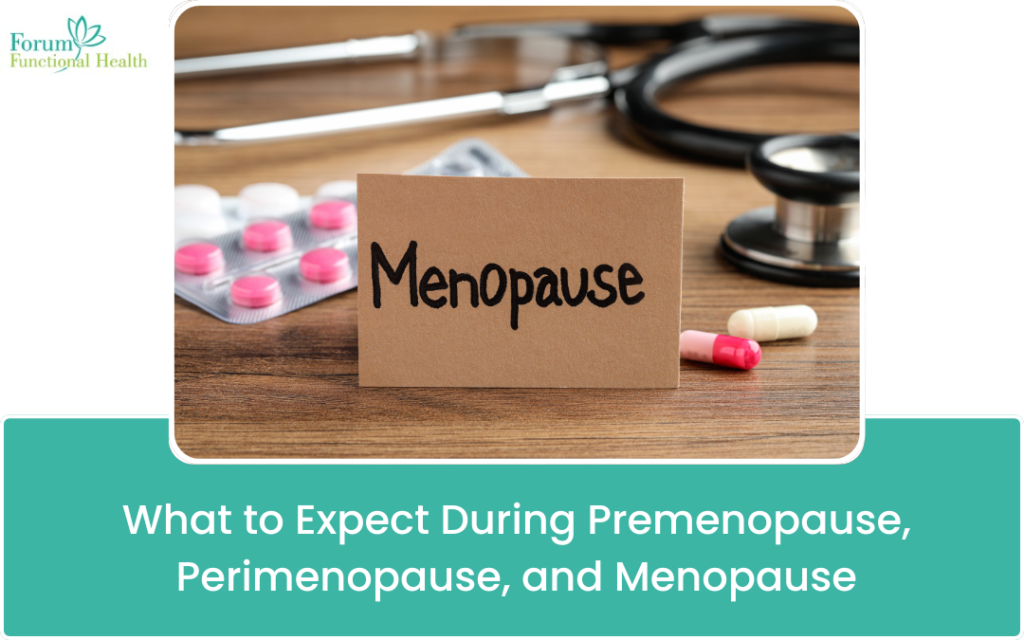
Navigating through the different stages of menopause can be a significant journey for women, impacting both their physical health and emotional well-being. Understanding what to expect during premenopause, perimenopause, and menopause can help women prepare for and manage these changes effectively. At Forum Functional Health Center in McKinney, Texas, we specialize in providing comprehensive care […]
Is Perimenopause Ending? 10 Signs Perimenopause is Coming to an End
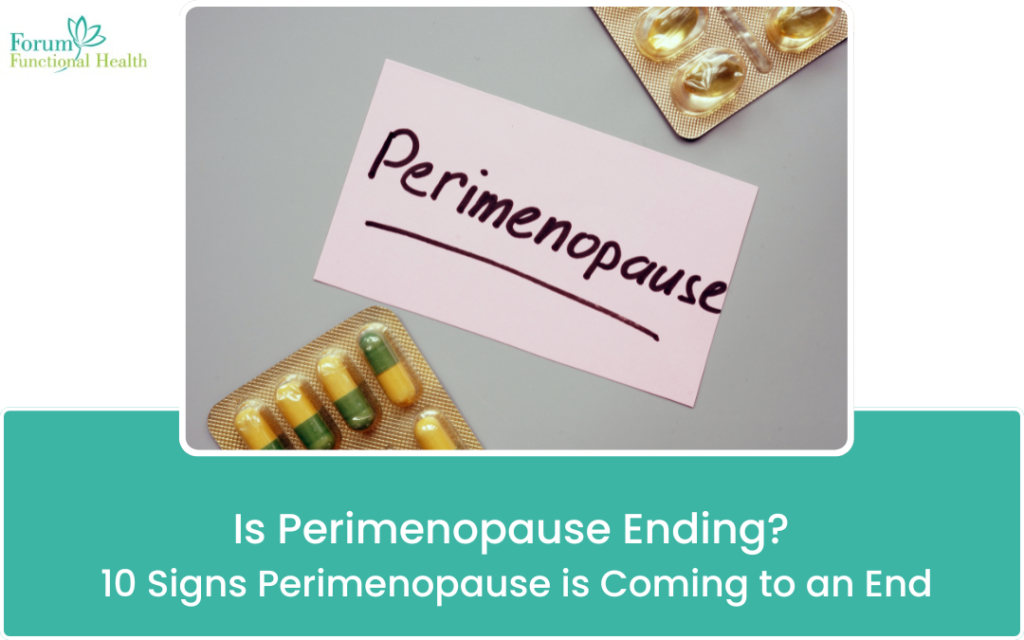
Perimenopause, the transitional phase leading up to menopause, can be a challenging time for many women. Understanding the signs that perimenopause is coming to an end can bring relief and a sense of control. If you’re experiencing symptoms and seeking effective perimenopause treatment in McKinney, Texas, Forum Functional Health Center offers comprehensive care. Here are […]
10 Signs Perimenopause Is Ending: Explore Best Treatments in Texas

Perimenopause is a significant transitional phase in a woman’s life, often marked by various symptoms and emotional fluctuations. Understanding the signs that perimenopause is ending can bring a sense of relief and preparedness. In this blog post, we will explore ten signs indicating the end of perimenopause and discuss the best treatment options available in […]
Understanding the 34 Symptoms of Perimenopause
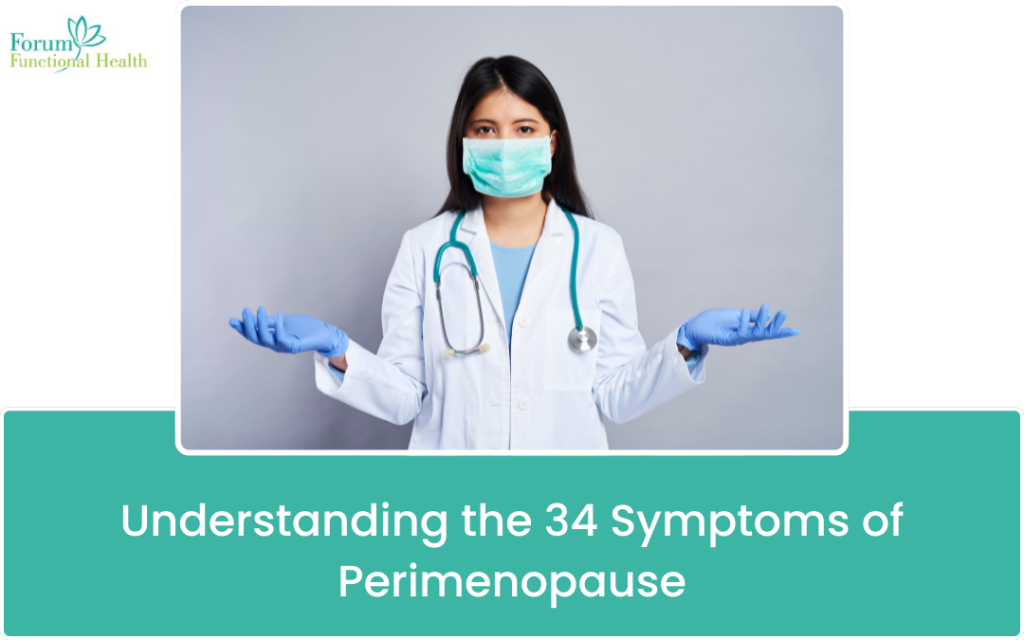
Perimenopause is a natural transition period that precedes menopause, marked by a variety of symptoms due to hormonal changes in the body. For many women, this phase can be both confusing and challenging. Understanding the symptoms and finding effective treatment options is crucial for managing this transition smoothly. In McKinney, TX, the Forum Functional Health […]
Unraveling the Mystery: Can Perimenopause Cause Fatigue?
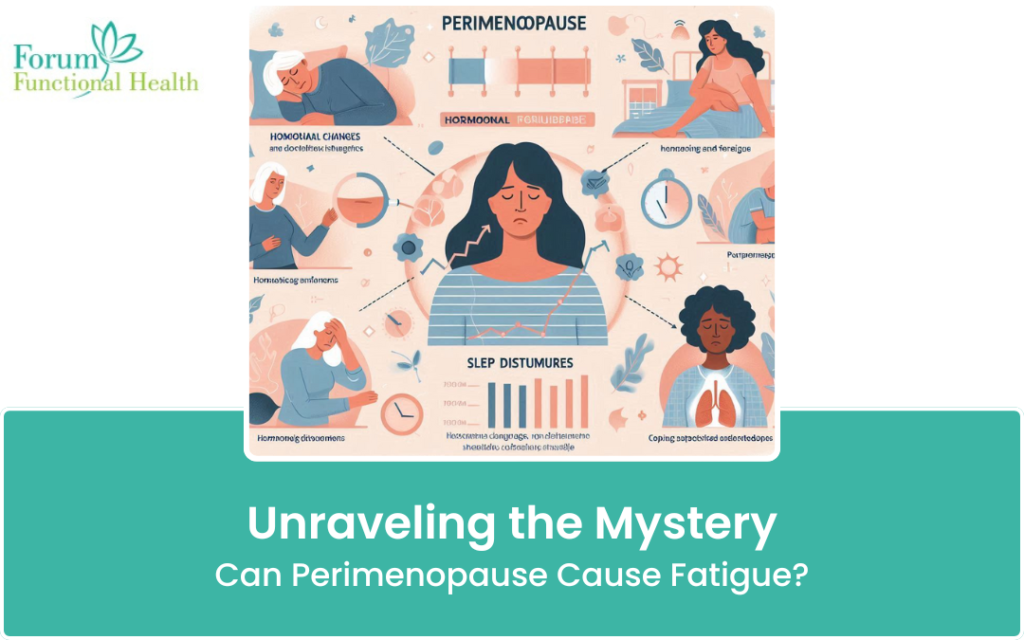
Welcome to the Forum Functional Health Center’s blog, where we delve into topics that impact women’s health. Today, we’re uncovering the often-overlooked connection between perimenopause and fatigue. If you’re seeking perimenopause treatment in McKinney TX, you’re in the right place. Let’s explore how perimenopause can cause fatigue and what you can do about it. Understanding […]
How do you know if you are Premenopausal?

Life throws a lot at us, and for women, that often includes a period of transition called Premenopause. It’s the time leading up to menopause, when your body starts preparing to say goodbye to your fertile years. This transition can come with a whole new set of questions and, let’s be honest, sometimes anxieties. So, […]
